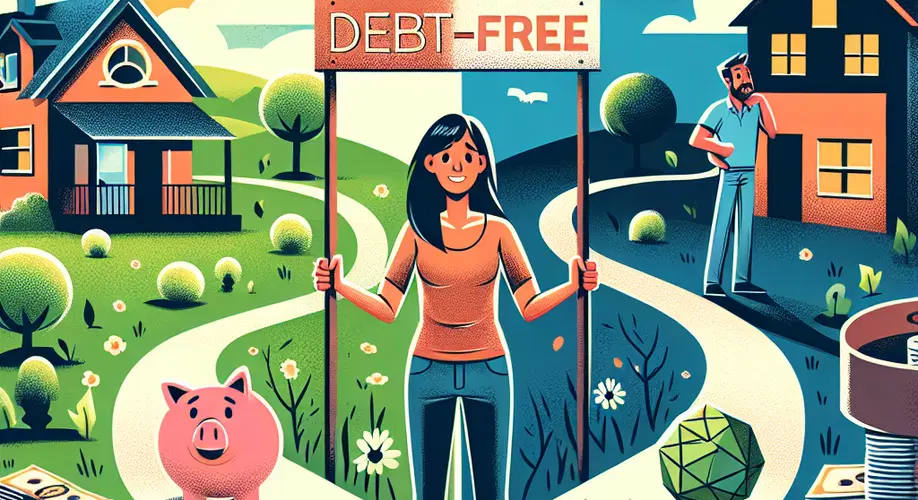Are you looking for DEBT RELIEF answers? Call toll-free 866-250-6599

Understanding Accredited Debt Relief Services: Pros and Cons
Accredited debt relief services are instrumental in helping individuals regain financial stability without resorting to bankruptcy. These services work by negotiating with creditors to lower the total debt owed, creating a manageable payment plan that aligns with the debtor's financial situation. However, while the debt relief process can lead to significant reductions in debt, it may also impact credit scores and requires careful consideration of the fees involved. As a pro, accredited agencies typically have a proven track record and are regulated to ensure fair practices, but as a con, consumers must be diligent in selecting reputable services to avoid scams.
Exploring bankruptcy alternatives is crucial for those wishing to avoid the long-term financial repercussions associated with filing for bankruptcy. Options like debt consolidation, credit counseling, and debt management plans offer different pathways to financial freedom. Each alternative comes with its own set of advantages, such as potentially lower interest rates or waived fees, and challenges, like strict budget adherence. It's essential for individuals to review their financial circumstances thoroughly to determine which option best aligns with their goals and current financial state.
Improving one's credit score goes beyond resolving immediate debt issues; it involves a comprehensive approach to personal finance management. Strategies include maintaining low credit card balances, ensuring timely payments on existing debts, and avoiding new credit inquiries. Not only does a higher credit score provide greater financial opportunities, but it also enhances terms when engaging in debt relief options. It's important to note that while debt settlement can offer immediate relief, it may temporarily decrease a credit score, making it essential to balance debt relief actions with credit score improvement tactics.
Navigating Financial Hardship: Effective Bankruptcy Alternatives Examined
Debt settlement services have gained popularity among individuals struggling with high debt loads. These accredited institutions offer a structured process for negotiating with creditors to settle debts for less than the full amount owed. By examining debt settlement reviews, consumers can get a sense of the credibility and success rate of various providers. This critical information can inform one's decision to pursue debt settlement as a viable alternative to bankruptcy, potentially avoiding the long-term implications on one's credit report.
The quest for financial solvency often leads to an exploration of bankruptcy alternatives. Among them, personal finance management emerges as a cornerstone strategy. Comprehensive budgeting and spending analysis can uncover ways to reallocate funds towards debt reduction without resorting to drastic measures. Similarly, debt relief services can propose repayment plans or debt consolidation loans that align with an individual's specific financial circumstances, offering hope for those seeking to evade the ramifications of bankruptcy.
While accredited debt services can provide immediate relief, long-term financial health depends on improving one's credit score. Strategies such as timely bill payments, debt-to-income ratio optimization, and prudent credit usage are fundamental. For those who have resorted to debt settlement, it's essential to understand that rebuilding credit will take time and consistent effort. However, the journey towards an enhanced credit score is a key component in regaining financial stability and accessing better financial opportunities in the future.
Enhancing Credit Score: Strategies Beyond Debt Settlement
Accredited debt relief services provide more than just temporary fixes; they lay the groundwork for long-term credit score improvement. Engaging with these services can be a pivotal step in shifting focus from short-term debt settlement to developing solid financial habits. By strategically planning payments and negotiating lower interest rates, individuals can reduce their debt-to-income ratio, a critical factor in credit scoring. As a result, people not only alleviate their current financial stresses but also enhance their future borrowing capabilities.
To build upon the foundation set by debt relief programs, individuals must consider comprehensive strategies that contribute to credit score enhancement. This includes timely bill payments, maintaining low credit utilization, and avoiding the opening of new credit lines unnecessarily. Each of these actions signals to credit bureaus responsible credit management, which gradually strengthens one's credit profile. Furthermore, monitoring credit reports for inaccuracies and disputing any errors can also provide a boost to credit scores.
Finally, alternative approaches such as seeking credit counseling or developing a personalized financial plan should not be overlooked when striving for a healthier credit score. Credit counseling services often offer tailored advice suited to individual financial scenarios and can help craft a budget that facilitates debt repayment without compromising credit health. Moreover, designating funds for savings and emergency situations can mitigate the risk of future debt accumulation, ensuring that the journey to credit score recovery is sustained over time.









